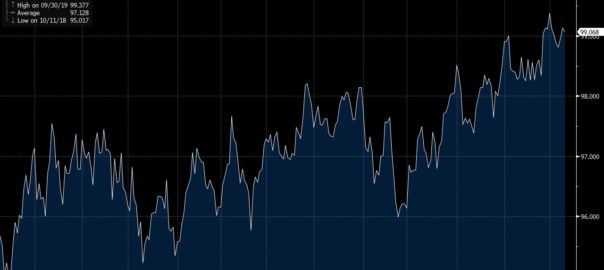As I explained on CNBC:
Even the most optimistic assumptions are unlikely to change the trend of weak global growth.
Continue reading A US-China Trade Deal Will Likely Be A Zero-Sum Game
As I explained on CNBC:
Even the most optimistic assumptions are unlikely to change the trend of weak global growth.
Continue reading A US-China Trade Deal Will Likely Be A Zero-Sum Game
In this seventh episode of my video-blog, we discuss negative rates. Why do central banks implement them? What are the alleged benefits and risks? Is it true that economic agents spend more and take more credit when nominal rates are negative?.
Please subscribe to my channel and watch the other episodes. Comments, as always, are welcome.

The Federal Reserve, through its president Jerome Powell, has indicated that it is preparing to increase its balance “organically”. The effort to separate this latest monetary policy change of course from a full-blown new QE (quantitative easing) is, at the very least, amusing. If we look at what is being discussed, it has nothing to do with organic expansion and looks a lot like a new repurchase program. Continue reading Quantitative Easing Is Back
US deficit is rising due to excessive spending increases, despite rising tax receipts. The federal government’s revenue went up by 4%, to $3.46 trillion in the 2019 fiscal year, according to the CBO report. However, spending went up by more: 8%, to $4.45 trillion. Continue reading The US Deficit Problem Is A Spending Problem